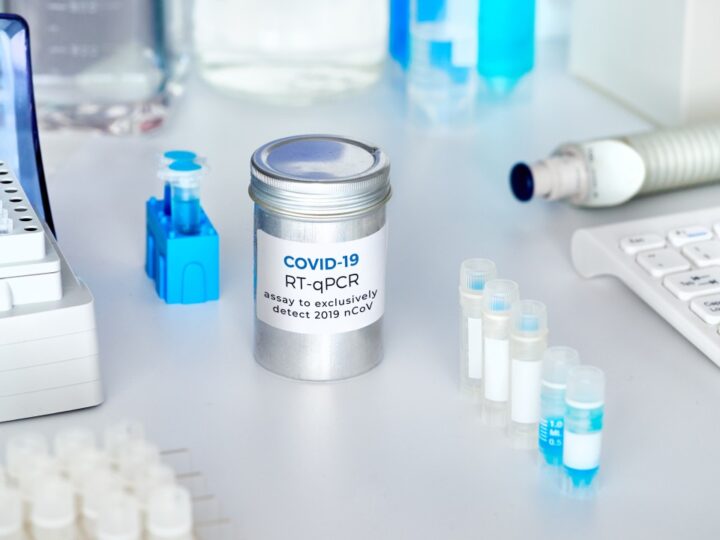Despite the U.S. having the highest score of pandemic preparedness around the world, COVID-19 pandemic has been trying on many fronts.[i] It has managed to exhibit the weaknesses in our governmental policy-making, healthcare preparedness, containment efforts, divides in reopening of the country, and even more so in the community’s testing processes[ii]. In order to stop the spread of COVID-19, it is critical to contain it; in order to successfully contain it, we need to be able to test individuals at a much higher rate with much higher accuracy than currently possible. Unfortunately, the assumption of the nation’s preparedness was determined to be unfounded, and we have seen everything from failed test kits and misunderstood and misrepresented accelerated approval processes to false negative and false positive virus results[iii]. Some might say that fit-for-purpose tests that give false positives and/or false negatives are better than no tests when it comes to saving lives. As a bioanalyst, I disagree. Bad tests are worse than no tests as they give us false data, ring false alarms, and at worst, lead to improper treatment of patients risking people’s lives. While I agree that the testing community has been under tremendous pressures to deliver faster than ever, such breakdowns and errors must be avoided. I truly believe that we can do much better.
Having worked at and with many pharmaceutical companies and Contract Research Organizations (CROs), I understand everyone is under constant pressure to deliver more in shorter timelines. This often leads to a higher probability of inadequate development and erroneous testing, which translates into good drugs failing in development and bad ones making it to the market. It manifests in a much higher degree during times of extreme pressure, such as now with COVID-19 testing. As you may already know, the CDC developed the COVID-19 test kit in a record 7 days, but these test kits failed miserably and gave out false positives even while testing distilled water. For a system that stands on the principles of quality and patient-safety, 7 days was an unprecedented time. But little did we know at the time that it came at the cost compromising the very pillars of quality and patient-safety[iv].
In order to keep our citizens safe, we need two types of testing: viral testing and antibody testing. Viral testing helps with diagnosing patients who have contracted COVID-19. We are currently employing reverse transcriptase polymerase chain reaction (RT-PCR) for diagnosis. Antibody testing assesses individual’s immunity toward the foreign body. Currently available antibody tests use lateral flow technique, the same technology used for pregnancy tests[v].
Due to the urgency to contain the pandemic and identify individuals that need care, these tests are being rushed to the market under Emergency Use Authorization, an accelerated process that allows developers of these tests to bypass approval process upon internal validation of the tests[vi]. This has led to certain tests making it to market and resulting in false negatives in viral testing and false positives in antibody testing, which are both dangerous.
What makes it worse is the fact that the most commonly used COVID-19 tests, using the RT-PCR, are assumed to give out 30% false negatives during testing, based on some preliminary studies that have taken place in China. Dr. Harlan M. Krumholz, a professor of medicine at Yale University and director of the Yale New Haven Hospital Center for Outcomes Research and Evaluation, thinks the number of false negatives may be even higher in the U.S.[vii] These false negatives can lead infected individuals to infect others in the community.
On the other hand, antibody testing is critical in making decisions regarding reopening our country and measures we need to take in the future to limit the damage that can be caused by upcoming waves of COVID-19. They provide information on who may have contracted the virus with little to no symptoms, who may have already recovered by the time of testing, individuals who are immune to it, and for how long they might be immune[iii]. However, current tests are only designed to provide data on whether an individual had ever contracted COVID-19. We need advanced tests that can also determine if one has developed immunity against the virus and how long they may have immunity.
Yet another problem is the lack of testing for all and slow response time. As per the Organization for Economic Cooperation and Development, the U.S. has performed 16.4 tests per 1,000 people, where Spain and Italy have performed 22.3 and 29.7 tests per 1,000 people respectively[viii]. This is because we could not get our test kits to perform successfully. This delayed the process of starting to test individuals by weeks, thereby causing irreparable harm in containing the outbreak in its early stages and leading to undermine all of the other efforts that the U.S. took to fight and limit the spread of COVID-19.
The question I would like to ask is whether we need to give into the urge to bring out a subpar product, or can we, as a community, find better ways to address this on a larger scale in the biopharma industry- I believe we can. But first, we need to understand what the underlying problem is behind these events, that is, we need to know the “why” before we can address the “how”.
As humans, we tend to assume things and accept them for what they are. We believe our “testing procedures and personnel are [at least] fine”, if not best in class. We believe that “it won’t happen to us.” Sometimes we might even wonder if “the regulatory authorities are going to look into this data.” And at other times, we downplay the importance of testing by questioning “when has testing been an issue, or, when was it even on our critical path?” As a consultant working on rescue projects for the pharma industry, I have come across all of these at least once, if not several times.
We are fighting COVID-19 pandemic with all the wrong tools: distrusting tests made available by the World Health Organization; scrambling to put together failed tests, only to allow academic hospital labs and private sector to develop their tests later on; low quality testing with success rates lingering between 50 and 70%; and slow throughput of 1-5 days in providing test results[v]. Is this efficient? Is this acceptable, given we have hundreds and thousands of lives at stake?
It is time that we address our cultural and behavioral predispositions for the better good of the biopharma community and our patients. We fail to acknowledge and accept that we can make smaller changes and use technology to not only help us address these issues in a faster and more efficient manner, but also provide higher quality results. We just need to let go of the fear around regulations and accept new solutions that can solve our problems rather than holding on to traditional, and in some cases, out-of-date technologies and processes. Let’s make a pledge today to revisit how we can improve the speed, safety and quality of developing and testing drugs so that we do not have to live through another pandemic or another failed drug with these missteps in the future.
Note (04May2020): The newest development of the Roche antibody serological test approved on 03May2020 shall be reviewed and covered in a follow up post[ix].
References:
[i] https://www.theatlantic.com/health/archive/2020/03/how-will-coronavirus-end/608719/?utm_source=atl&utm_medium=email&utm_campaign=share
[ii] https://www.washingtonpost.com/investigations/2020/04/03/coronavirus-cdc-test-kits-public-health-labs/?arc404=true
[iii] https://www.fda.gov/news-events/press-announcements/coronavirus-covid-19-update-serological-test-validation-and-education-efforts
[iv] https://www.propublica.org/article/cdc-coronavirus-covid-19-test
[v] https://www.medicalnewstoday.com/articles/coronavirus-testing#how-does-it-work
[vi] https://www.washingtonpost.com/investigations/2020/04/03/coronavirus-cdc-test-kits-public-health-labs/?arc404=true
[vii] https://www.livescience.com/covid19-coronavirus-tests-false-negatives.html
[viii] https://www.cnn.com/2020/04/29/health/us-coronavirus-wednesday/index.html
[ix] https://www.roche.com/media/releases/med-cor-2020-05-03.htm




